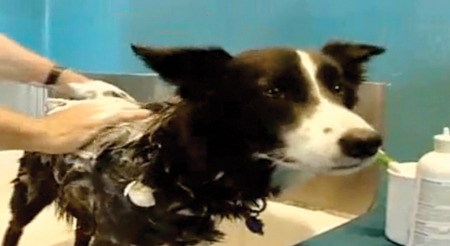Dog wash stations and event tent rentals are just some of the money-making ideas Metro Â鶹´«Ã½Ó³»intends to explore as it opens up its regional parks to more commerce.
Regional district officials have considered more than 100 possible ventures to turn a profit in area parks while adding new services.
We have to start thinking outside the box in terms of revenue, parks committee chair Gayle Martin said.
We cant always go to taxpayers for the things we want. This would help us enhance other parts of the parks with the revenue.
Work is already underway to launch a tent rental service that will charge market rates for the rental of event tents in Metro Â鶹´«Ã½Ó³»parks.
It could cost us initially $100,000 to invest in a tent inventory but in the first year were looking at a $60,000 payback, Martin said. So its paid back in a year and some months.
Until now rental firms charged clients up to $10,000 to rent a large tent but Metro got only a small $150 fee.
Dog obedience training is to be tested this summer as a pilot project in Pacific Spirit Regional Park and is to be offered in six regional parks next year, turning an expected annual profit of $28,000.
Over the longer term, the region could develop specialized dog services such as business-run washing stations that Martin said have proven popular in dog friendly parks in parts of the U.S.
One San Francisco-area park is home to Mudpuppys Tub and Scrub, which offers highly pampered full service or do-it-yourself dog baths as well as toys and treats, with a specialty coffee café next door.
I could see it happening in Pacific Spirit, where we get a lot of dog walkers, Martin said.
Dog waste could also be collected and turned into fertilizer for sale, a staff report said.
Negotiations are also underway with an operator to install vending machines at up to six parks that dont already have food services.
Metro also plans to start charging $3.99 per download for the next version of its currently free iParks Explorer park info app, which staff estimate could earn the region more than $80,000 over the next year based on a projected 30,000 downloads.
Metros parks now generate enough revenue to offset nine per cent of their operating costs and the regional district wants to boost that to 15 per cent over the next 10 years. Other ideas rated promising by Metro staff include upgrading picnic shelters to more deluxe all-weather structures that could be reservable for a fee.
The region also plans to start charging commercial bus tours a fee to access parks.
Longer term possibilities include redeveloping Metro-run Camp Capilano and Minnekhada Lodge, which are now used mainly for weddings or gatherings by youth and service groups.
Staff say both facilities could, if upgraded, be rented out at much more lucrative rates as corporate retreats, while continuing to serve existing users.
Sapperton Landing Regional Park, on the Fraser River near New Westminster, could be developed into a retail, park and marina complex, the staff report suggested.
Ideas like ziplines or pay-to-play water parks were considered by staff but didnt make their short list.
Some of the services could be run directly by Metro Vancouver, while others might be contracted to private firms.
Various private companies are already pitching their own ideas for business ventures in Metro parks, Martin said.
Park-goers could count on basic use of parks remaining free.
Nobody would have to pay to go to the beach, walk a trail, park their car or use a toilet or other basic infrastructure.
The new drive by Metro to wring more cash out of its parks comes in the wake of a series of failed efforts in the past.
Metro previously studied the potential for several large scale projects, including restaurants, a sky tram, a canopy walk and a golf academy.
None advanced, but Metro has a contractor-run campground at Brae Island and has smaller scale services such as food concessions and bike rentals at some parks. Revenue from parks also comes from access fees charged for the TV and film industry, rental houses, agricultural licences and communication tower leases.
Jeff Nagel



